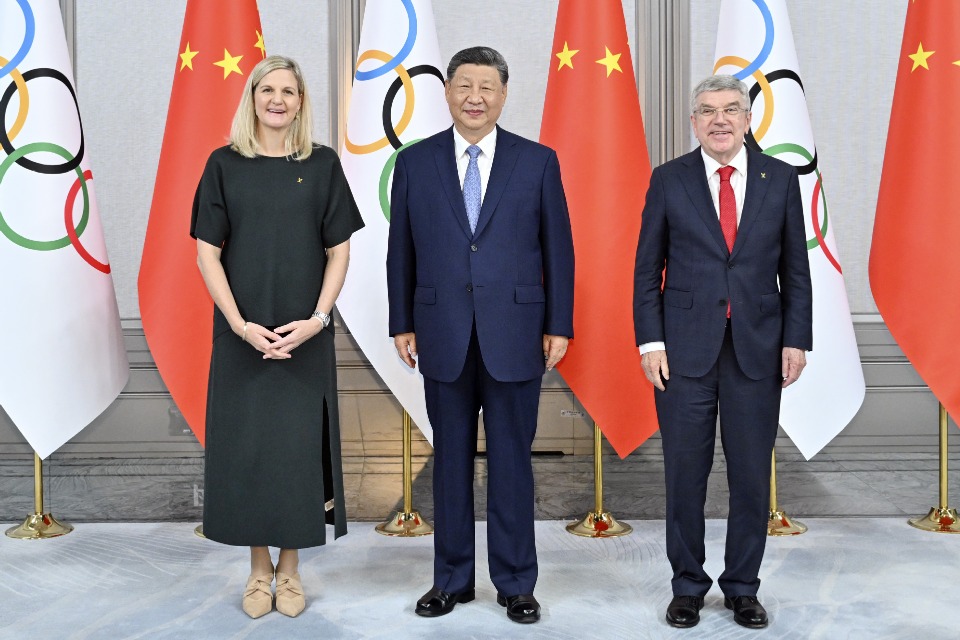A sincere friend on the New Silk Road


Serbia can, by advocating transparency and fair trade, deepen China-EU cooperation, thus positioning itself as an important figure in a major geopolitical narrative
Last year marked the 10th anniversary of the Belt and Road Initiative, which is focused on boosting regional connectivity and fostering a prosperous economic future by developing infrastructure and expanding trade routes across Asia, Europe and beyond. This initiative gathers about 150 countries, or three quarters of the global population. Serbia, a small country in the Balkan region, has emerged as a significant partner in this initiative. Its strategic location makes Serbia a crucial hub for the BRI. Thanks to this initiative, many substantial and mutually beneficial achievements have been made regarding cooperation between the two countries.
Fifteen years have passed since bilateral relations between China and Serbia entered a new phase. In August 2009, the Serbian government promoted China as one of the four most important pillars of Serbia's foreign policy.
In June 2016, during President Xi Jinping's visit to Belgrade, a comprehensive strategic partnership was formalized. Since then, this relationship has grown rapidly and deepened, encompassing mutually advantageous cooperation across all key sectors.
Politically, Serbia and China support each other's sovereignty and territorial integrity in global forums and organizations. China steadfastly supports Serbia's endeavors to defend its sovereignty and territorial integrity and to seek a resolution for Kosovo via dialogue under the United Nations Security Council Resolution 1244. At the same time, Serbia consistently supports China on the Taiwan question and adheres to the one-China policy.
On economic issues, Serbia and China collaborate on numerous significant projects, including the construction of the Belgrade-Budapest high-speed railway, a cornerstone of the BRI.China has invested heavily in Serbia's infrastructure, energy, and technology sectors, viewing the country not just as a transit route, but also as a strategic industrial hub. Noteworthy projects include the construction of bridges and roads, as well as the revitalization of the Smederevo steel factory by a Chinese steel conglomerate. Chinese companies such as HBIS, Zijin Mining, and Zijin Copper are now among Serbia's top exporters. Moreover, China has become Serbia's main trading partner. Last year, a free trade agreement between China and Serbia was signed in Beijing. Its primary goal is to significantly reduce both tariff and non-tariff barriers, including various quotas and certification requirements. This agreement is expected to alleviate Serbia's trade deficit with China and boost the Serbian economy through increased employment, investments and exports.
Cultural ties between Serbia and China are deepening through educational and cultural exchanges. Programs such as scholarships for Serbian students to study in China and the establishment of Confucius Institutes in Serbia are deepening mutual cultural understanding. Last year, the Chinese Cultural Center was established in Belgrade, at the site of the former Chinese embassy. As we mark 25 years since the NATO bombing of Yugoslavia, President Xi paid a state visit to Serbia, reflecting the enduring friendship between China and Serbia.
However, since 2018, the negative narrative regarding China has increased. On the one hand, some Western countries perceive the BRI as a Chinese attempt to create a Sinocentric world order. Western criticism and pressure on China partially stem from the expansion of its automotive industry. The entry of high-quality, competitively priced Chinese vehicles is particularly troubling for Western markets. On the other hand, the European Union, while considering Serbia's Eurointegration, has expressed concern about Chinese influence in the Balkans. The partnership has invited negative comments regarding the so-called Chinese debt.
In fact, some European countries are obsessed with concocting the "China threat" theory and refuse to recognize China's development. They should cooperate with China to upgrade European manufacturing industries, and compete fairly with Chinese companies.
Within the BRI, China has fostered mutually beneficial cooperation, aiding developing countries in infrastructure and economic development without imposing political conditions, unlike some European counterparts.
As Serbia deepens its strategic partnership with China, it increasingly stands at the intersection of East-West politics and economics. Deepening the comprehensive strategic partnership between China and Serbia toward the vision of a community with a shared future for mankind is the fundamental concept of Xi Jinping Thought on Diplomacy. This represents a concentrated expression of the collective pursuit of values for all humanity and has brought tangible benefits to people in all countries.
By advocating for transparency, fair trade, and sustainable development, Serbia can strengthen its position as a crucial mediator, not just in fostering bilateral relations with China but also in enhancing wider cooperation between China and the European Union. In pursuing these strategies, Serbia not only promotes its own interests but also assumes a more proper role in the stability and prosperity of the region, positioning itself as an important figure in a major geopolitical narrative of our era.
The author is a researcher at the Faculty of Political Sciences at University of Belgrade, Serbia. The author contributed this article to China Watch, a think tank powered by China Daily. The views do not necessarily reflect those of China Daily.
Contact the editor at editor@chinawatch.cn.


































